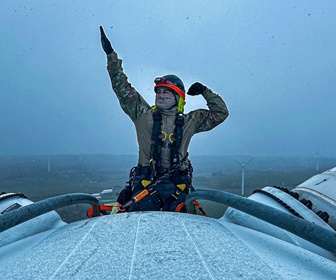Last week the German Parliament passed a revision of Germany’s offshore wind law (WindSeeG) with important updates to their offshore wind auction design. The new design will introduce qualitative auction criteria and allow for uncapped negative bidding. The Parliament dropped the Contracts for Difference (CfDs) that were in the original proposal.
WindEurope CEO Giles Dickson says: “The German Government had proposed to introduce Contracts-for-Difference (CfD), a model successfully used by many other European countries. But the German Parliament have now dropped that.
The WindSeeG introduces a two-track auction system. One track auctions sites pre-surveyed by state authorities. The other track is for sites not pre-developed
The next offshore wind auctions in Germany are scheduled for June and August 2023. Both will be for centrally pre-developed sites. The latter will now be auctioned on a catalogue of qualitative criteria. 60 out of 100 possible points on the bidding price and 40 on the following criteria: the use of green electricity and green hydrogen in the production of the wind turbines, an education and training quota, the conclusion of a power purchase agreement, biodiversity and nature protection in the installation of the wind turbines.
WindEurope generally supports qualitative criteria. Well designed, they can reward the added value wind energy brings. Up until recently wind farm developers bidding in auctions focused solely on reducing the cost of their offshore wind farms, because price (of the electricity they generate) was the only criterion.
For the not pre-developed sites the WindSeeG introduces auctions that are solely based on price and allow for negative bidding. Not only will developers get no state support. They will need to pay for the right to build an offshore wind farm. And there’s no cap on how much they can bid to pay.
Denmark’s last offshore wind auction, for the Thor wind farm, used negative bidding. The winner is paying the government €375m for the right to develop the project. Germany could now be heading for even higher negative bidding – and ruinous cost competition. The Netherlands do it better. They’ve capped negative bids at €50mn in their latest offshore wind auctions.
Governments may be tempted to make money with negative bidding. But they need to remember it imposes additional costs. And that developers have to pass these costs on to someone. They either pass them on to consumers in the form of higher energy bills. And/or they pass them on to their suppliers by paying less money for their turbines.
Germany aims to build 30 GW of offshore wind by 2030, 40 GW by 2035 and at least 70 GW by 2045. The German government has already hinted at a possible repair bill later this year.










